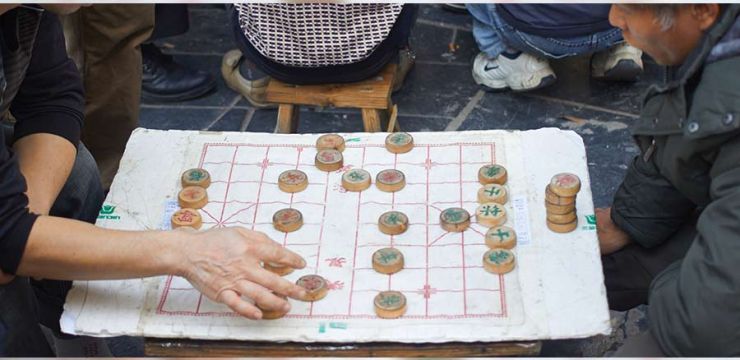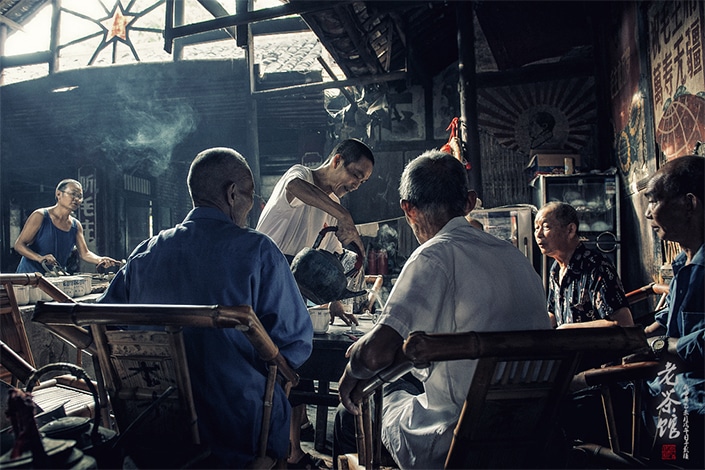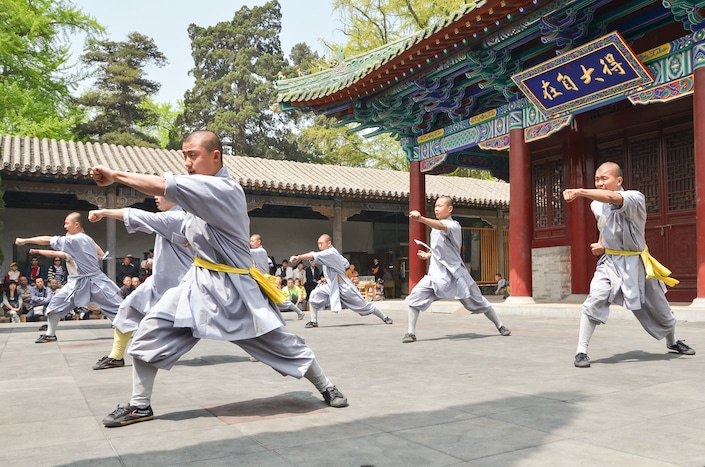The Culture of Chinese Chess
Learn Chinese in China or on Zoom and gain fluency in Chinese!
Join CLI and learn Chinese with your personal team of Mandarin teachers online or in person at the CLI Center in Guilin, China.

Guilin is bubbling over with cultural experiences, and each experience is open for foreign students to observe and even take part in. There are ayi ("aunties") line-dancing in city plazas each night; there are Mahjong (麻将 májiàng) parlors where people gamble and gossip late into the evening; there are philosophical discussions over tea ceremonies in local tea houses.
Participating in cultural activities like these is a great way for CLI students to meet new people, practice their spoken Chinese, and interact with Chinese culture. In this week's blog post, Bradford Fried shares a recent cultural experience and the language opportunity and friendship it provided.
Chinese Chess
By Bradford Fried, Co-founder of CLI
On a beautiful day in Guilin this week, I went for a bike ride around the city and into the countryside. Just like any other day, I passed numerous groups of Chinese men standing in a circle intensely focused on what was happening at the center. Many newcomers to China are surprised to discover these onlookers are actually observing a fascinating aspect of Chinese culture: Chinese chess.
I am a big fan of board games, so I decided to stop and watch. This small crowd had five people watching and two men playing. Some of the onlookers were strangers to the players, other friends, but all in attendance were eager to provide suggestions for the players' next move.
For a board game, Chinese chess is surprisingly loud and energetic. Players slam pieces down with conviction while shouting out their actions. Although the game doesn't involve a timer, it is fast and aggressive; most players only think for a few seconds between each move, and games are finished in around ten minutes.
Chinese chess has been played in China for at least two thousand years. It can quickly be picked up by anyone who knows how to play international chess. The rules are very similar, as are the pieces and strategy.
As one of the oldest cultural activities in China, Chinese chess is a great way for CLI students to immerse themselves in Guilin's local community. Within a few minutes of stopping to watch the game, I was talking with the onlookers and players, giving my own suggestions of moves to make, and asking why one of the players didn't take an obvious capture. When the game ended, I was invited to play against the winner — and I was soon left wondering how I was defeated so quickly (but I think I put up a good fight).
Everyone I spoke with was eager to share their knowledge of Chinese chess with me and they asked me lots of questions about my experiences in Guilin. The game I played is a great example of an opportunity where trying is more important than winning, and there are lots to try in Guilin!












